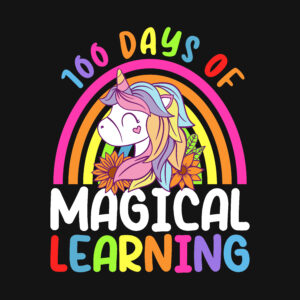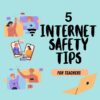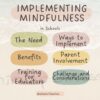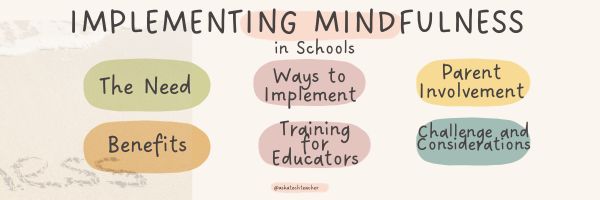Author: Jacqui
100th Day of School — It’s about Learning
The 100th day of school is a special milestone celebrated in many educational institutions around the world. It is particularly popular in elementary schools, often filled with fun and educational activities centered around the number 100.
How to celebrate
Here are activities I like that blend learning into the celebration of the 100th Day of School:
Geography
As a class, come up with two locations in each state, to total 100. One will be oriented around geography and one around history (such as “Kansas became a state January 29, 1861”). Include a brief description and a picture and then share the collection with parents and schoolmates in the class newsletter or another vehicle.
History
Research what happened the hundredth year of your home country’s existence. What was the country like a hundred years ago? What caused it to change? Who was president? What has been invented since then? Divide the class into groups so the project can be completed in one class period. Then, have everyone copy their information to a digital magazine (like you can create in Canva or Adobe) and share it with everyone.
Share this:
- Click to share on Facebook (Opens in new window) Facebook
- Click to share on X (Opens in new window) X
- Click to share on LinkedIn (Opens in new window) LinkedIn
- Click to share on Pinterest (Opens in new window) Pinterest
- Click to share on Telegram (Opens in new window) Telegram
- Click to email a link to a friend (Opens in new window) Email
- More
The 3 Best Strategies For Teachers To Keep Students Engaged
The 3 Best Strategies For Teachers To Keep Students Engaged
Engaging students in the classroom is a key factor in successful teaching and learning. However, keeping students interested and involved in their education can be a big challenge. It’s very important to make sure they are engaged and actively learning so they can end up going to a good college and building a future with a good foundation.
With distractions from technology and diverse learning needs, teachers need to constantly adapt and find innovative ways to keep their students focused. Having the right strategy is essential. In this article, we will give you several tips to help increase engagement among your students. (more…)
Share this:
- Click to share on Facebook (Opens in new window) Facebook
- Click to share on X (Opens in new window) X
- Click to share on LinkedIn (Opens in new window) LinkedIn
- Click to share on Pinterest (Opens in new window) Pinterest
- Click to share on Telegram (Opens in new window) Telegram
- Click to email a link to a friend (Opens in new window) Email
- More
Mastering Photo Editing: A High School Student’s Ultimate Guide to a Creative Career
As High School students explore post-graduation options, more and more are looking at careers as creators. Boosted by the rise in popularity of generative AI image options like DALL-E, photo editing as a career enjoys a resurgence among those preparing to enter the work force. It is fulfilling and potentially lucrative and relies heavily on individual passion and preparation. The Ask a Tech Teacher team has ideas on how to prepare for this career if it is your future.
Dive into the world of photo editing with our comprehensive guide tailored for high school students. Discover essential skills, artistic techniques, and practical steps for building a standout portfolio. Learn about color theory, composition, and the latest software to kickstart your journey in digital art and prepare for a successful career in photo editing.
How High School Students Can Prepare for a Career in Photo Editing
Photo editing has become a crucial skill in the digital age for professional photographers and anyone aspiring to a creative career. Our article aims to guide high school students like you who are interested in this field, highlighting the essential skills and artistic insights needed for success.
We will explore how mastering photo editing goes beyond learning software, emphasizing the importance of visual storytelling, artistic expression, and technical proficiency. No more words, let’s get it started! (more…)
Share this:
- Click to share on Facebook (Opens in new window) Facebook
- Click to share on X (Opens in new window) X
- Click to share on LinkedIn (Opens in new window) LinkedIn
- Click to share on Pinterest (Opens in new window) Pinterest
- Click to share on Telegram (Opens in new window) Telegram
- Click to email a link to a friend (Opens in new window) Email
- More
What Happens When Technology Fails? 3 Work-Arounds
Has this happened to you? You spend hours rewriting an old lesson plan, incorporating rich, adventurous tools available on the internet. You test it several times just to be sure. It’s a fun lesson self-paced lesson plan with lots of activities and meandering paths students undoubtedly will adore. Technology enables it to differentiate authentically for the diverse group of learners that walk across your threshold.
Everyone who previewed it is wowed. You are ready.
Until the day of, the technology that is its foundation fails. Hours of preparation wasted because no one could get far enough to learn a d*** thing. You blame yourself–why didn’t you stick with what you’d always done? Now, everyone is disappointed.
Share this:
- Click to share on Facebook (Opens in new window) Facebook
- Click to share on X (Opens in new window) X
- Click to share on LinkedIn (Opens in new window) LinkedIn
- Click to share on Pinterest (Opens in new window) Pinterest
- Click to share on Telegram (Opens in new window) Telegram
- Click to email a link to a friend (Opens in new window) Email
- More
5 Internet Safety Tips for Teachers
5 Internet Safety Tips for Teachers
The internet has provided teachers with numerous tools to enhance their students’ learning experience. However, it’s not without a few downsides. Cyber threats, in particular, can expose both educators and learners to new kinds of risks that could endanger their privacy and security.
As a teacher, taking proactive measures to avoid and mitigate them is critical for creating a safe environment to teach and learn while maximizing the perks of the vast digital resources the internet offers.
Common Cyber Threats Facing Educators
Every profession has had its fair share of internet-based troubles. But what scams and crimes are teachers most likely to encounter? (more…)
Share this:
- Click to share on Facebook (Opens in new window) Facebook
- Click to share on X (Opens in new window) X
- Click to share on LinkedIn (Opens in new window) LinkedIn
- Click to share on Pinterest (Opens in new window) Pinterest
- Click to share on Telegram (Opens in new window) Telegram
- Click to email a link to a friend (Opens in new window) Email
- More
The Importance of Technical Translation Services
When most people want to translate a page, the easy solution is right-click and select “Translate” from the drop-down menu. Or, they might go to Google’s free “Translate” service. But there are a lot of reasons those may not be good choices. They aren’t particularly accurate with contextual understanding and they may not be as secure as you need. For critical translations or professional content, a specialized translation service is a better choice.
The Ask a Tech Teacher team checked into this and came up with some ideas:
The Importance of Technical Translation Services
Technical translation services are vital, especially for a global business. They will allow you to easily tap into international markets as you will be able to provide more accurate translations. These translations may be of manuals, instructions, patents, or product information.
In this article, we’ll give you a comprehensive overview of the importance of technical translation services. (more…)
Share this:
- Click to share on Facebook (Opens in new window) Facebook
- Click to share on X (Opens in new window) X
- Click to share on LinkedIn (Opens in new window) LinkedIn
- Click to share on Pinterest (Opens in new window) Pinterest
- Click to share on Telegram (Opens in new window) Telegram
- Click to email a link to a friend (Opens in new window) Email
- More
Tech Tip #67: How to Add Accents and more
As a working technology teacher, I get hundreds of questions from parents about their home computers, how to do stuff, how to solve problems. Each week, I’ll share one of those with you. They’re always brief and always focused. Enjoy!
Q: I teach Spanish and need a quick way to add accents to words. Can you help?
A: You can go through the symbols library, but there’s an easier way. Use the Ctrl key + the accent. Here is a table:
Share this:
- Click to share on Facebook (Opens in new window) Facebook
- Click to share on X (Opens in new window) X
- Click to share on LinkedIn (Opens in new window) LinkedIn
- Click to share on Pinterest (Opens in new window) Pinterest
- Click to share on Telegram (Opens in new window) Telegram
- Click to email a link to a friend (Opens in new window) Email
- More
Implementing Mindfulness Practices in Schools
Implementing Mindfulness Practices in Schools
In recent years, mindfulness has gained significant traction, not just in adults’ lives but also in educational settings. Incorporating mindfulness practices in schools has proven beneficial for students’ well-being, emotional regulation, and academic success. Let’s explore why and how mindfulness practices are making their way into classrooms worldwide.
The Need for Mindfulness in Schools
Modern education often heavily emphasises academic achievement, leaving students stressed, anxious, and overwhelmed. In such a high-pressure environment, the need for mindfulness practices becomes apparent. These practices help students manage stress, develop emotional resilience, and foster a positive attitude towards learning. Another great way to alleviate some academic stress is outsourcing some of your assignments to trustmypaper.com. This provider will complete your essays with ease, allowing you to allocate some time to mindfulness practices.
Benefits of Mindfulness Practices
1. Improved Concentration
Mindfulness exercises, such as meditation and deep breathing, can enhance students’ ability to focus. These practices train the mind to stay present, reducing distractions and improving concentration levels, ultimately benefiting academic performance.
2. Stress Reduction
One of the primary benefits of mindfulness is stress reduction. Students face various stressors, from exams to social pressures. Mindfulness techniques offer tools to manage stress, promoting a calmer and more conducive learning environment.
3. Emotional Regulation
Mindfulness teaches students how to recognize and manage their emotions effectively. By understanding their feelings and reactions, students can develop healthier relationships with peers and teachers, leading to improved behavior and cooperation.
4. Enhanced Self-Awareness
Through mindfulness, students gain a better understanding of themselves. This self-awareness helps them identify their strengths and weaknesses, facilitating personal growth and self-improvement.
5. Increased Empathy
Mindfulness practices encourage empathy and compassion. Students learn to appreciate the feelings and experiences of others, leading to more respectful and inclusive interactions in the classroom. (more…)
Share this:
- Click to share on Facebook (Opens in new window) Facebook
- Click to share on X (Opens in new window) X
- Click to share on LinkedIn (Opens in new window) LinkedIn
- Click to share on Pinterest (Opens in new window) Pinterest
- Click to share on Telegram (Opens in new window) Telegram
- Click to email a link to a friend (Opens in new window) Email
- More
Choosing Tech That Grows From Your Schooling Into Your Career
Choosing Tech That Grows From Your Schooling Into Your Career
Starting a career is an exhilarating journey, and in today’s tech-driven world, the technology you choose during your school years can be a foundational step toward your professional tech arsenal. Having the right gadgets and tools plays a pivotal role in academic success and setting a strong foundation for your professional life.
The transition from academic life to the professional world is significant, and the technology we use plays a crucial role in this journey. As students, technology aids in learning, research, and collaboration, while in the professional realm, it becomes a tool for productivity, communication, and innovation. The key is to invest in technology that not only meets your current educational needs but also has the potential to adapt and evolve as your career progresses. This approach not only ensures continuity in your tech use but also provides a solid foundation for professional growth. (more…)
Share this:
- Click to share on Facebook (Opens in new window) Facebook
- Click to share on X (Opens in new window) X
- Click to share on LinkedIn (Opens in new window) LinkedIn
- Click to share on Pinterest (Opens in new window) Pinterest
- Click to share on Telegram (Opens in new window) Telegram
- Click to email a link to a friend (Opens in new window) Email
- More
Tons of Online Resources About Classroom Management
Classroom management tools are useful for teachers to create an organized, productive, and conducive learning environment. Some reasons why you may find these tools beneficial are:
- Organization: organize lesson plans, assignments, and resources efficiently
- Communication: between teachers, students, and parents to foster a collaborative relationship, keep everyone informed
- Student Engagement: to make learning more interesting and interactive
- Time Management: schedule reminders, notifications, and more
- Assessment and Grading: create and grade assignments, quizzes, and exams, and provide quick feedback to students.
- Behavior Management: set expectations, monitor conduct, and implement positive reinforcement strategies
- Data Analysis: provide analytics, track student performance, identify areas that need additional attention
- Remote Learning Support: coordinate virtual classrooms
- Parental Involvement: allow parents to monitor child’s progress, access grades, and communicate with teachers
Here’s a wide collection of mostly online resources you can check out. Find what works for your classroom environment: (more…)
Share this:
- Click to share on Facebook (Opens in new window) Facebook
- Click to share on X (Opens in new window) X
- Click to share on LinkedIn (Opens in new window) LinkedIn
- Click to share on Pinterest (Opens in new window) Pinterest
- Click to share on Telegram (Opens in new window) Telegram
- Click to email a link to a friend (Opens in new window) Email
- More





















































